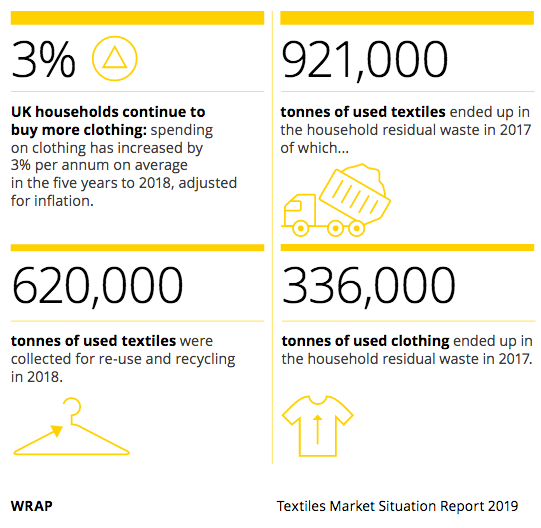
Quick thread 🧵to pick out a few main points from this excellent post from @Josie_Warden. There's a lot of good insight in here, and praise for the kind of place-based work we do at @ZeroWasteLeeds. #JoinTheRegeneration 1/
https://twitter.com/theRSAorg/status/1463445286819442690
First up, some background. @ZeroWasteLeeds have been working on clothing and fashion for a couple of years now. Why? Leeds was pretty much built on textiles & tailoring. And clothing has big environmental impacts. We believe Leeds can lead the way in showing a better way. 2/
As part of @theRSAorg Regenerative Futures project, we created #LeedsFashionFutures, exploring how together as a city Leeds could once again be a world leader in clothing & textiles - with sustainability at the heart of everything we do. 

And why were @theRSAorg interested in what we were doing? Because they're keen to understand how you involve people locally in an issue like this. For example, can Leeds' textile heritage help to start up conversations, in Leeds, on clothing and its climate impacts? 4/
It all ties in with what we're aiming to do around building a movement. This isn't about us as one organisation. It's about how together as a city we do stuff. Setting up local school uniform exchanges. Supporting eachother to learn repair skills. Championing local makers. 5/
We see our role as a convener, connector, spotter of opportunities, seeing the bigger picture. Josie outlines this kind of role well here - ""the middle-up-down" - the space between grassroots innovations and institutions, policy and governance, vital for effecting change". 6/ 

There are example across UK of orgs playing similar roles in different ways - like @CIVIC_SQUARE, @OnionCollective, @ParticipatoryC & @Art_Gene. "Conveners, interpreters, translators, diffusers of knowledge. Understanding place, identity and culture is central to the role." 7/ 

I'll leave you to read whole article (it's really good - thersa.org/blog/2021/11/p…) but Josie makes a key point that clearly we agree with - the kind of work we do - "convening, interpreting, translating, diffusing knowledge...." is important & needs support. 8/8 #circulareconomy
@threadreaderapp unroll please
• • •
Missing some Tweet in this thread? You can try to
force a refresh












